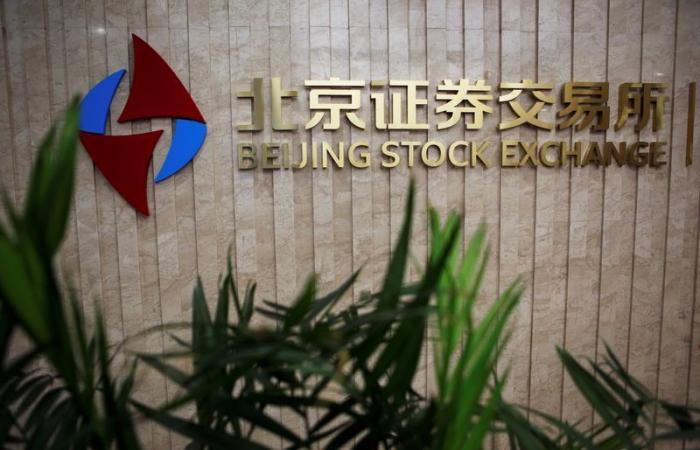A preview of the day ahead in Asian markets.
Three monetary policy decisions are dominating Asian markets on Wednesday, with investor sentiment and risk appetite likely to be contained by Wall Street’s decline and worries about technology and the global economy the day before.
Central banks in Indonesia, Thailand and the Philippines all set interest rates on Wednesday, while New Zealand inflation, South Korean unemployment and Japanese machinery orders are also on the agenda.
Oil prices are falling again, partly due to weak demand, particularly in China. Crude oil futures fell nearly 5% on Tuesday, pushing U.S. crude below $70 a barrel and bringing the annual decline to 20%.
Tech worries pushed US stocks into the red, despite positive results from financial heavyweights Goldman Sachs, Citi and Bank of America. Actions by Nvidia and ASML have been behind the global tech slide, and attention will shift later in the week to Taiwan Semiconductor Manufacturing Co, the contract manufacturer that produces Nvidia’s processors.
It is expected to announce a 40% jump in quarterly profit on Thursday, thanks to increased demand.
Bank Indonesia is expected to leave interest rates unchanged on Wednesday despite inflation falling to its lowest level since 2021, with the exchange rate a key concern for policymakers.
Inflation fell to 1.84 percent and met Bank Indonesia’s 1.5 percent to 3.5 percent target throughout the year, but the rupiah fell more than 3 percent. compared to its September peak.
The Bank of Thailand is also expected to remain on hold and leave its overnight rate at 2.50% for the rest of the year. Four of 28 economists polled by Reuters forecast a drop of a quarter point.
The Philippine central bank, meanwhile, is expected to cut its overnight borrowing rate by 25 basis points to 6.00% and again in December as policymakers seek to support economic growth then that inflation remains under control.
The central bank launched its easing cycle in August, and since then inflation has fallen below the bank’s 2% to 4% target.
Meanwhile, investors continue to digest the details and China’s about-face over the weekend on its stimulus measures, as well as the recent round of data. None of this has been particularly encouraging and Chinese markets are trending lower, although stocks are still up substantially from “pre-stimulus” levels.
On Tuesday, Beijing announced that a press conference would be held on Thursday to discuss promoting “steady and healthy” development of the real estate sector. If this announcement was intended to reassure investors, it remained a dead letter.
The Shanghai flagship index is down 13% compared to last Tuesday’s peak, but remains up 20% compared to the day before Beijing unveiled its measures to support the markets, the sector of real estate and growth.
Here are the main developments that could steer the markets on Wednesday:
– Interest rate decisions in Indonesia, Thailand and the Philippines
– Seiji Adachi of the Bank of Japan speaks
– Inflation in New Zealand (Q3)






